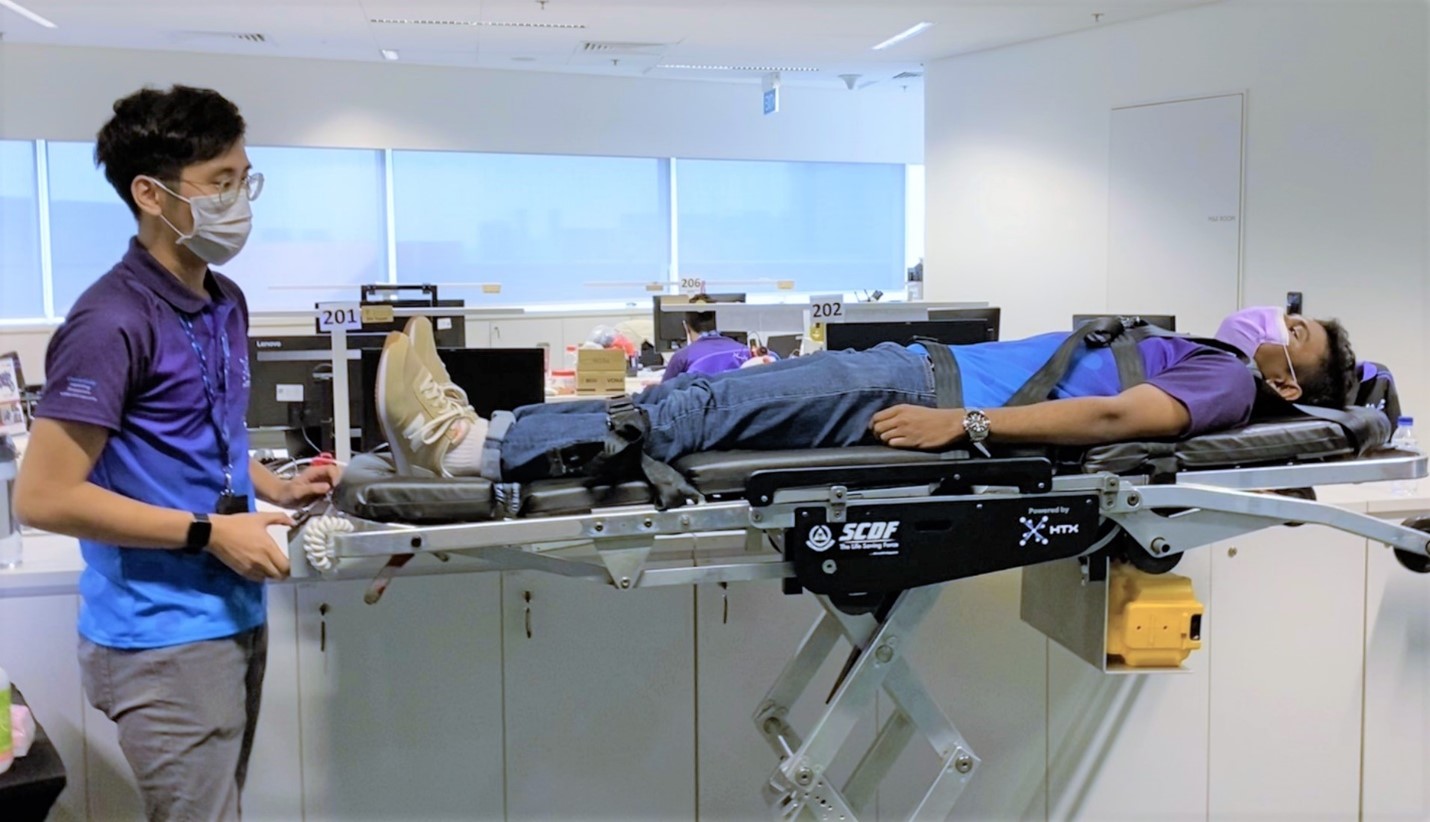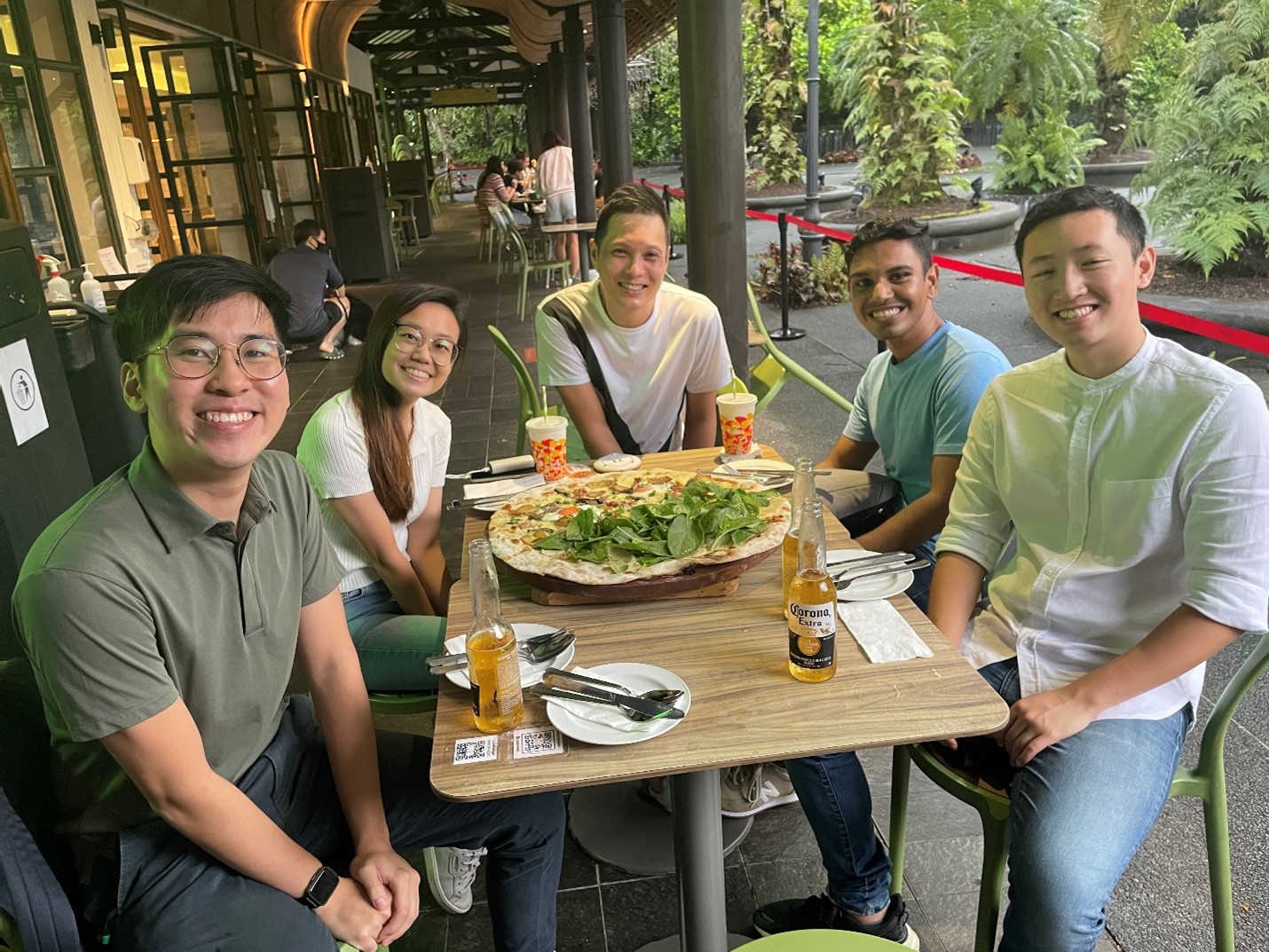Fresh out of university, engineering graduates are flush with knowledge about their chosen specialisation.
But learning how to be innovative, striving for excellence and developing soft skills are competencies which are nurtured at work.
In fact, to Dr. Daniel Teo, these are critical components of a “complete” engineer. And as someone who has enjoyed mentoring and coaching since his youth, Dr. Daniel Teo revels in building up this “wisdom and practical experience” in young engineers during their “golden years”.
This period, explained the Head of HTX’s Robotics, Automation and Unmanned Systems (RAUS) Centre of Expertise, is what he considers the first 5-8 years of a trained engineer’s professional career.
Building up the “complete” engineer
As a role model, Dr. Daniel’s experience and expertise in itself is an inspiration. He was the first Singaporean to win the R&D 100 Awards in 2014, one of the most prestigious scientific innovation awards world-wide.
He said, “Instead of focusing on career progression, I think it is more important to make our young engineers aware about the kind of decisions that they may have to face in the future and what they really want to achieve in their lifetime.
“Career progression will come naturally if they do their best in every assignment given to them and mostly importantly, to do the work that they love so that they would still want to go to work every day even after 10-20 years.”
Instead of focusing on career progression, I think it is more important to make our young engineers aware about the kind of decisions that they may have to face in the future and what they really want to achieve in their lifetime.
To him, the young engineer must build up deep engineering skillsets, which he is well-placed to give advice on.

Dr. Daniel (middle) mentored the HTX 2021 PSC scholars for their internship with HTX (Photo: HTX)
But his care extends beyond engineering.
Take communications, a skillset which Dr. Daniel feels that all complete engineers must have.
From the art of power point presentations, written proposals or documents to the preparation of scripts for live presentations, Dr. Daniel dives into the specifics to ensure his mentees are able to put forth their best.
He said, “I’ll always be with them to rehearse, at least 4-5 times, until they are able to convey all the essential information without looking at the script. This practice would help them to overcome possible stage fright, especially if they are presenting to large crowds or decision-makers.
“Without good presentation and written skills, no one will appreciate their work even if it is brilliant.”
The wisdom he imparts extends to areas like building prototypes and coping with failures in attempts to come up with feasible inventions which can be mass-produced.
Clearly, as a mentor, Dr. Daniel has an affinity for young engineers who have just stepped out of school.
Kong Shao Wei, a RAUS engineer in Dr. Daniel’s team, notes that the team comprises of mostly fresh graduates.
Said Shao Wei, “This in itself speaks volume about Dr. Daniel’s willingness to accept these fresh faces even though it would require additional time, effort and commitment to guide and nurture them. Despite this, he has managed to maintain a high work standard for the team.”

(Photo: HTX)
Under Dr. Daniel’s guidance, Shao Wei (left) and his team built the Motorised Stretcher prototype for SCDF.
Beyond the bolts and nuts of mentoring, Dr. Daniel likes to share insights on life.
Rather than putting on the blinkers, he encourages his mentees to try out new experiences, talk to people of different cultures, understand how different societies are run, and – when travel is permitted – visit other countries.
He reflected, “As potential future leaders, they need this diversity and wealth of experience in their life to make sound decisions in future. I tell them, stay true and humble, we only live once, so make good use of it.”

Dr. Daniel (middle) with the young engineers and interns from RAUS (Photo: HTX)
About Dr. Daniel Teo
Dr. Daniel Teo is the Head, Robotics, Automation and Unmanned Systems Centre of Expertise in HTX. His journey as a mentor started in his student days when his peers would approach him for help as he was doing well in his studies. During his postgraduate years, he continued coaching fellow course mates who were taking Master’s degree programmes. In 2009, Dr. Daniel joined A*STAR as a research scientist specializing in robotics and automation and about 11 years ago, when the opportunity came for him to teach night classes under the Singapore Workforce Skills Qualification framework to working adults, he took it up immediately even though it meant additional hours after work. He taught in Massachusetts Institute of Technology as a visiting scientist in 2016 and went on to become an adjunct professor with the National University of Singapore and was an associate professor with the Newcastle University (Singapore Institute of Technology). Over the past decade, he has taught undergraduates, postgraduates, working adults and graduated a few Ph.D. and Master’s students.
We are always seeking inquisitive and innovative individuals to co-create extraordinary solutions with us.
Join us to be at the forefront of the finest tech capabilities in the field! Join Us

